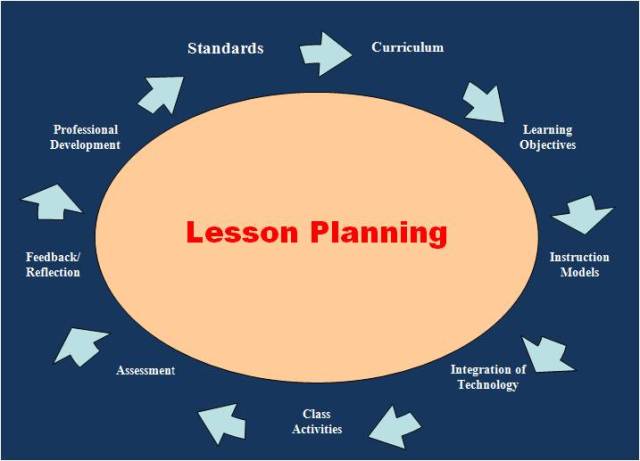Model B. Planning by Learning Stages
- Exploring Introduction. Involve students to recall their existing knowledge and reveal to others. The activity allows students to relate old learning to the new topic, while the teacher diagnoses their existing ideas.
- Development. Development builds on the results of the exploratory introduction. It requires more teacher direction as students are guided towards experiencing and developing new content or skill. The purpose is to explain and provide examples of key new socials studies content or skill.
- Expansion. After development stage, students need to apply and transfer the new idea, skill or attitudes to different situations. Additional practice and application help students retrieve social studies information for skills from their memory when needed. The goal is to have students apply the new knowledge and transfer into long-term memory.
- Conclusion. After the above three stages have been completed, a conclusion/summary should be drawn on the basic facts, principles, and/or theories learned from the lesson. This stage focuses on students’ synthesizing and evaluating skills.
Model C. Hunter’s 5-Steps with Advance Organizers or Anticipatory Set
- Anticipatory set
- Presentation
- Guided practice
- Independent practice
- Closure
Model D. Planning by Gagne's Nine Events of Instruction
Instructional Event |
| 1. Gain attention |
|
| 2. Inform learners of objectives |
|
| 3. Stimulate recall of prior learning |
|
| 4. Present the content |
|
| 5. Provide "learning guidance" |
|
| 6. Elicit performance (practice) |
|
| 7. Provide feedback |
|
| 8. Assess performance |
|
| 9. Enhance retention and transfer to the job |
|
|
|

